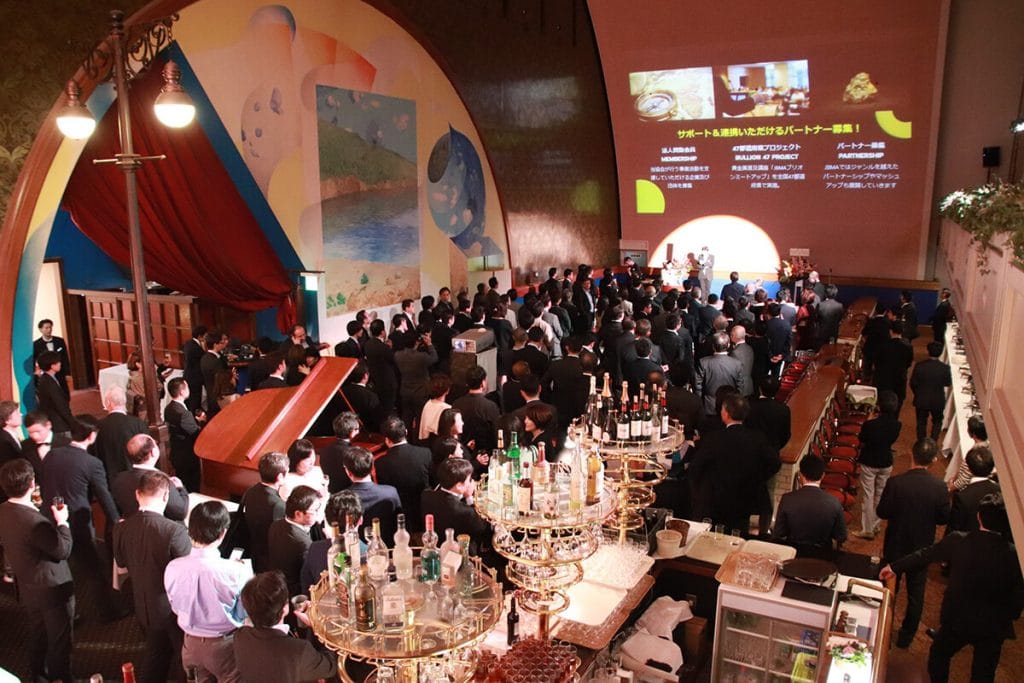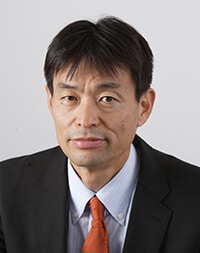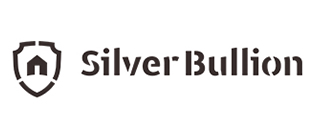Navigate
Article List
- Editorial
By Albert Cheng, CEO, SBMA
- The Effects of Covid-19 on Australia’s Precious Metals Market
By Bron Suchecki, Senior Precious Metals Project Analyst, Pallion
- Will Covid-19 Slow Gold Production in Russia?
By Sergey Kashuba, Chairman, Union of Gold Producers of Russia
- Consumer Behaviour Towards Gold Jewellery in Indonesia
By Jennifer Heryanto, Chief Executive Officer, SKK Jewels
- Korea’s Gold & Jewellery Market
By Da Young Kim, Senior Researcher, Wolgok Jewelry Research Center
- Feature | Gold Rush 2.0: Australia to Become World’s Biggest Gold Producer
By Shae Russell, Chief Editor, The Daily Reckoning Australia
- Special Focus | Japan Bullion Market Association
By Bruce Ikemizu, Chief Director, Japan Bullion Market Association
- Global Overview of Precious Metal Logistics
By Allan Finn, Director of Global Commodities, Malca-Amit
- Gold Demand Trends and The Impact of Covid-19
By Andrew Naylor, Head of ASEAN and Public Policy, World Gold Council
- Road Toward $2,000+ Gold Set to Be a Bumpy One
By Bart Melek, Global Head of Commodity Strategy, TD Securities
- SBMA News
By Albert Cheng, CEO, SBMA
Article List
- Editorial
By Albert Cheng, CEO, SBMA
- The Effects of Covid-19 on Australia’s Precious Metals Market
By Bron Suchecki, Senior Precious Metals Project Analyst, Pallion
- Will Covid-19 Slow Gold Production in Russia?
By Sergey Kashuba, Chairman, Union of Gold Producers of Russia
- Consumer Behaviour Towards Gold Jewellery in Indonesia
By Jennifer Heryanto, Chief Executive Officer, SKK Jewels
- Korea’s Gold & Jewellery Market
By Da Young Kim, Senior Researcher, Wolgok Jewelry Research Center
- Feature | Gold Rush 2.0: Australia to Become World’s Biggest Gold Producer
By Shae Russell, Chief Editor, The Daily Reckoning Australia
- Special Focus | Japan Bullion Market Association
By Bruce Ikemizu, Chief Director, Japan Bullion Market Association
- Global Overview of Precious Metal Logistics
By Allan Finn, Director of Global Commodities, Malca-Amit
- Gold Demand Trends and The Impact of Covid-19
By Andrew Naylor, Head of ASEAN and Public Policy, World Gold Council
- Road Toward $2,000+ Gold Set to Be a Bumpy One
By Bart Melek, Global Head of Commodity Strategy, TD Securities
- SBMA News
By Albert Cheng, CEO, SBMA
Special Focus: Japan Bullion Market Association
By Bruce Ikemizu, Chief Director, Japan Bullion Market Association
Published on June 10, 2020


BRUCE IKEMIZU is chief director and precious metals specialist at JBMA. He began his career at Sumitomo Corporation as a gold trader after graduating from Sophia University in 1986. He then worked for Credit Suisse and Mitsui & Co. before joining Standard Bank in 1996. He was the head of Tokyo branch of ICBC Standard Bank until leaving the bank in 2019. Bruce is currently using his knowledge and relationships within the sector to develop and grow the newly formed JBMA.
– Reviving Japan’s Precious Metals Sector
The Japan Bullion Market Association (JBMA) was formed in September 2019. This was not long after I left the bank where I had worked for the past 13 years, following its decision to close the bank’s Tokyo branch. Along with colleagues working in the industry, I had long been planning to contribute to the development of Japan’s precious metals market. From what I have seen in my experience in the Japanese gold market over the past three decades, the market has regrettably lost its energy during this time, particularly when compared to the gold and precious metals trading heydays of the 1980s, 1990s and 2000s. Back then, Japan, which has a very active Tocom futures market, was surely an Asian gold trading hub.
As a trader and as market participant, I had long been thinking about how I could help revive the Japanese precious metals market. The establishment of JBMA is a good opportunity for Japan’s precious metals community to do just that. The country’s precious metals market is currently vertically segregated between physical metals traders, such as smelters, recyclers and retail bullion shops, and financial firms that are trading gold contracts for difference (CFD), futures contract brokers, banks and security houses that are involved in precious metals exchange-traded funds (ETFs). JBMA is trying to fill the gap in the gold industry from physicals, futures, and financials. To us, gold is gold, whether it is in the form of physical kilobars, gold coins, ETFs or futures contracts. There must something the different sectors of the gold market can do together to promote precious metals to Japanese investors and people on the street. JBMA is ready to build bridges between those parties for the good of the precious metals industry as a whole.
JBMA has started by focusing on investor educations on precious metals. We have conducted several seminars to investors in several cities, and have set ourselves a target of conducting grassroots seminars in all 47 prefectures in Japan. Unfortunately, the Covid-19 pandemic has put a hold on our outreach efforts for the time being. Before the quasi lockdown that has been enforced in Japanese cities, we had already started to conduct seminars online, inviting specialists from all over the world to speak on not only precious metals but also other related areas like foreign exchange, equities, emerging markets, and more. This has proved to be a very useful channel of disseminating information as within a month, we have already reached over 10,000 viewers. SBMA CEO Albert Cheng spoke about the situation in Singapore and how Covid-19 is affecting the gold market in Southeast Asia in two of such sessions.
JBMA has received strong support from our associate cooperate members, which include Japan Exchange (JPX) – the biggest exchange group in Japan, which will merge Tocom precious metals contracts from July 2020 – as well as the World Platinum Investment Council (WPIC), Bullion Vault and Gold News. JBMA is offering JPX members educational programs on their contracts. More than 300 traders and sales executives from JPX member companies, such as trading houses, mining houses, banks, security houses and futures commission merchants attended our three-day intensive online course in mid-May. We are also helping WPIC to market platinum and palladium investment in Japan by translating their research and publications into Japanese and circulating them among Japanese investors.
As information in Japanese that compares platinum group metals (PGM) with gold is scarce, these reports have been well-received and are helping to boost the interest in PGM among investors. We are also connecting Japanese corporates who are involved in PGM investment to WPIC and are helping Bullion Vault reach Japanese investors with their products. Soon, we hope to sign with SBMA a memorandum of understanding that covers market development between Japan and Southeast Asia.
We are still not clear what kind of world will emerge after Covid-19 – we don’t even know if there will be an “after” at all, but we will adjust ourselves to this reality as it changes as we are certain the value of precious metals will be much higher in this unseen future.
– Changes Coming to Japan’s Commodity Futures Market
The Japanese commodity futures market is ripe for change. Historically speaking, the global futures market traces its origins to Japan in 1730, with the establishment of the rice futures exchange in Dojima City, Osaka. The Tokyo Commodity Exchange (Tocom) has its roots in Dojima. It started as the Tokyo Gold Exchange in 1982 and merged with the Tokyo Textile Exchange and Tokyo Rubber Exchange in 1984 to become Tocom as we know it today. The bourse grew its precious metals trading each year, with gold open interest peaking in February 1996 at 617 tonnes. Unfortunately, this volume steadily declined in recent years to 61.7 tonnes – exactly 1/10th of its peak, while open interest on Comex is now 1,632 tonnes. However, in the past three decades, Tocom has been the most active and important precious metals futures markets in Asia, closely trailing Comex/Nymex globally.
Equity and bond markets have shown huge volatility and investors have lost a lot of value in equities worldwide. The addition of some wild and very painful swings in bond markets, just when bonds would normally be expected to protect investors from weakness in equities, has focused investors on gold’s safe haven attributes.
Investors are worried about indebtedness on two fronts:
- Corporate leverage will amplify the pain felt by those companies most exposed to the economic impact of the coronavirus; and
- Deterioration in government finances as they respond to the coronavirus.
The supply of government debt coming to the market will likely have to be dramatically increased, weakening the bond market, and unconventional monetary policies will continue to drive down interest rates for longer, making gold a natural choice for investors both large and small.
As countries contain Covid-19 and lockdown restrictions ease, ABC Bullion feels that the outlook for gold remains strong based on two key demand drivers:
- The rise of middle market demand. There have always been two keen followers of gold: the retail side of the market and commodity trading advisors who come in and out of the market. Covid-19 will result in growing awareness of the role of gold in the great “middle”, who have either bypassed the gold market, or whose advisors have bypassed gold on their behalf.
- Official and government demand. There has been a trend for central banks in the east to accumulate gold and this will be spurred on by the stresses caused by Covid-19. The US was all for a trade war with China in the months before the coronavirus appearing, and the official sector will be additionally cautious about the diversification of their portfolio in a post-Covid-19 world.
Given the above, ABC Bullion is bullish on gold demand and therefore price. Before Covid-19, gold had experienced increasing institutional interest and a return of retail investors. The coronavirus will accelerate that interest as it underscores the diversification benefits that gold provides to investor portfolios.


Tocom has been an independent commodity futures market for precious metals, energy, rubber and agricultural products. Market participants and investors, however, recognise that this alone cannot sustain the exchange. For more than 10 years, the government and private sector have been studying the possibility of making it a comprehensive exchange, which covers stocks, financial derivatives and commodities under one umbrella, but the idea has not materialised because of the interests of the supervising ministries (i.e. Financial Services Agency, which governs financial instruments, and the Ministry of Trade and Ministry of Economy, Trade and Industry which covers commodities).
The battle over the governance of the new comprehensive exchange, which would include both financial instruments and commodities, was finally solved in October 2019, when Japan Exchange Group (JPX) conducted a tender offer for the issued shares of Tocom and converted Tocom into a wholly owned subsidiary of JPX.
JPX is the biggest exchange group in Japan and it has Tokyo Stock Exchange (TSE), the biggest stock market in Japan and Osaka Exchange (OSE), which specialises in financial derivatives. With Tocom under its umbrella, it is making some structural changes as a new comprehensive market.
From July 2020, some contracts will be transferred from Tocom to OSE, including precious metals contracts (gold, silver, platinum and palladium), rubber and soft commodities (corn, soybean and red bean). Only energy and electricity contracts will remain under Tocom. With this move, the Financial Services Agency will become the supervising ministry. More importantly, stock market investors who never had a chance to trade gold or other precious metals will have significantly easier access to this market.
The number of Japanese investors in the commodities futures market is estimated to be 100,000, which was the limit we had for a long time. For the commodities market, and gold in particular, this is a significant opportunity to broaden the investor base. Compared to the stock market, the commodities market is small. A small share of equities investors would change the gold market completely.
JPX has joined the Japan Bullion Market Association (JBMA) in April, and together, we have conducted intensive educational training for sales representatives and traders from security houses who have not had any experience in the commodities market. We are also planning an extensive education campaign for investors relating to the contract transfer in July. With the Covid-19 pandemic putting our roadshow to all 47 prefectures on hold, we are now conducting out outreach activities online.
With the gold price currently at a 40-year high in Japanese yen, there is a huge interest in gold among people on the street. Both JPX and JBMA are working to seize this opportunity, which will hopefully positively impact the precious metals market in Asia and the world.

BRUCE IKEMIZU is chief director and precious metals specialist at JBMA. He began his career at Sumitomo Corporation as a gold trader after graduating from Sophia University in 1986. He then worked for Credit Suisse and Mitsui & Co. before joining Standard Bank in 1996. He was the head of Tokyo branch of ICBC Standard Bank until leaving the bank in 2019. Bruce is currently using his knowledge and relationships within the sector to develop and grow the newly formed JBMA.

























